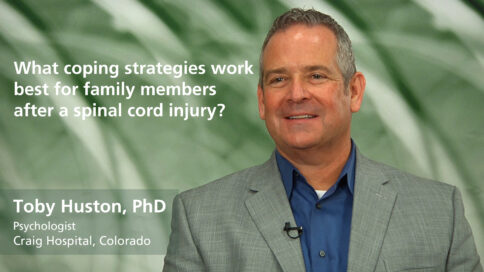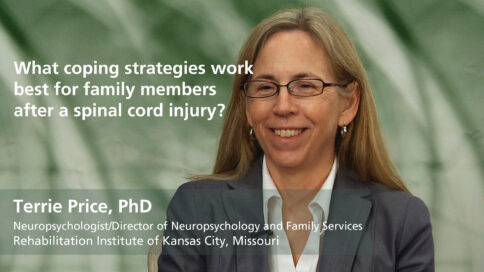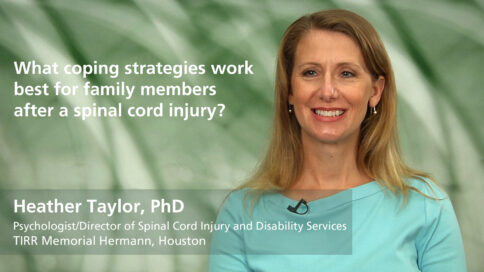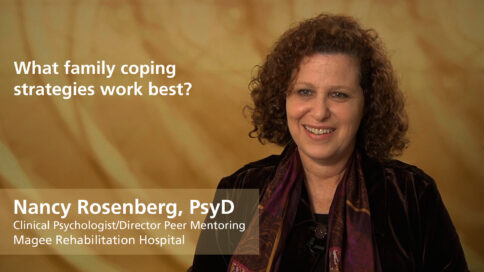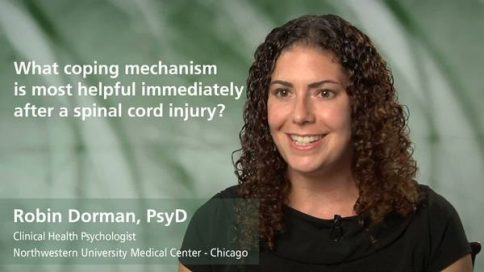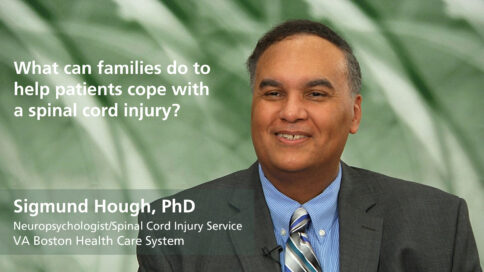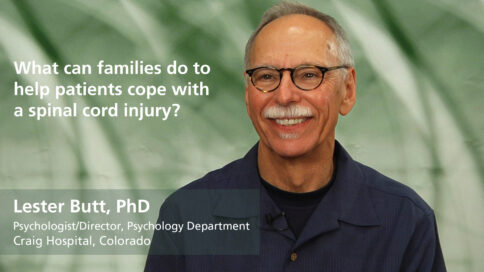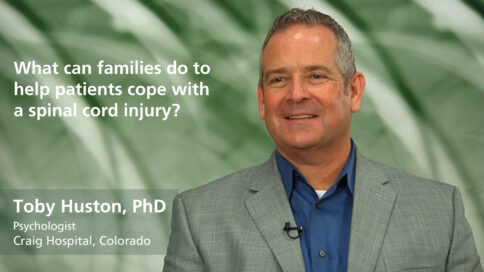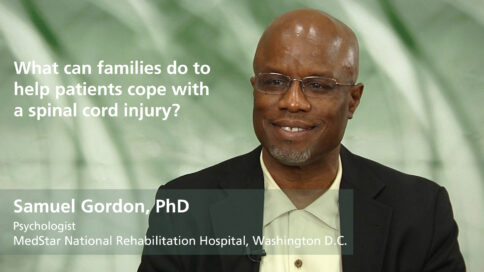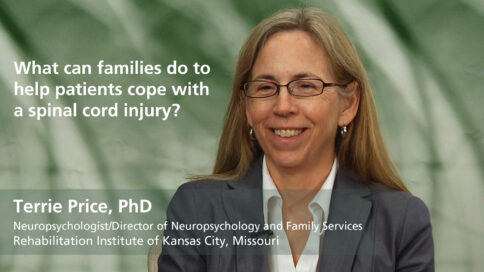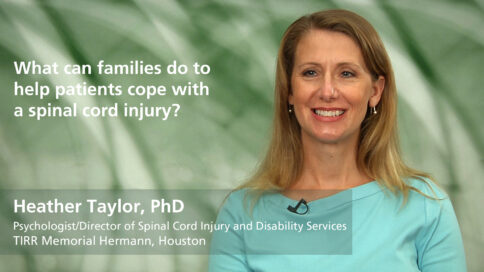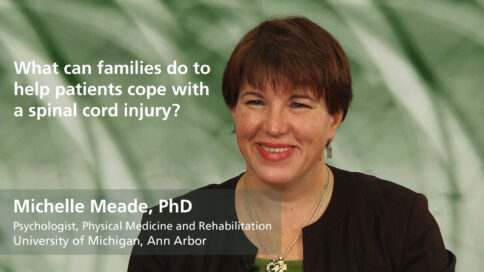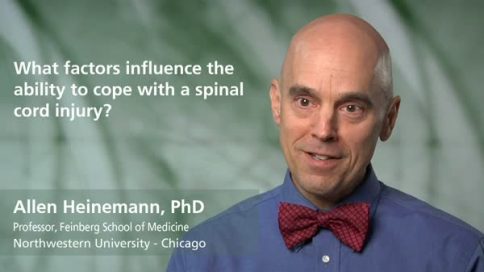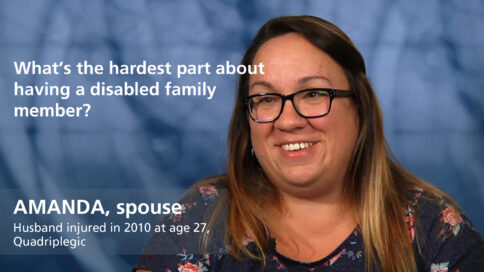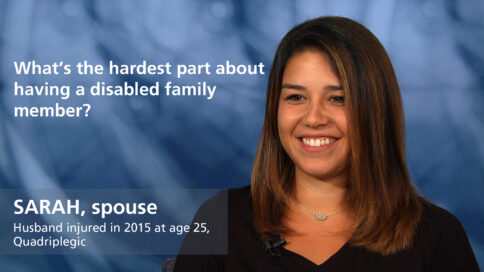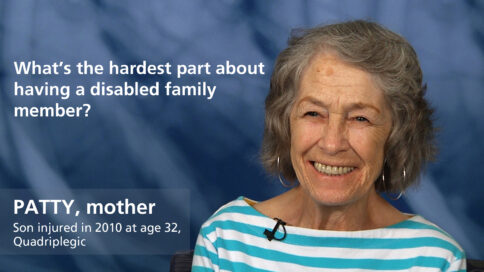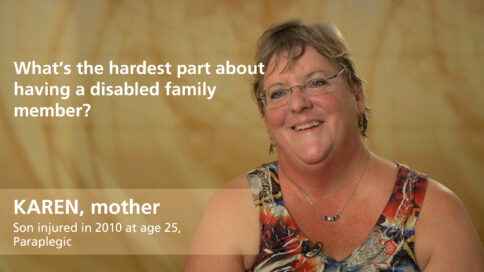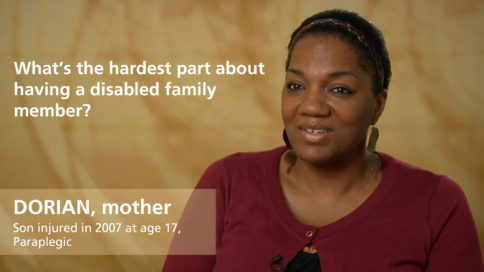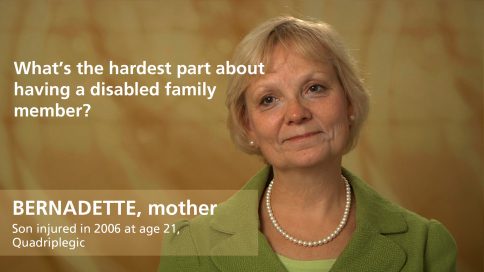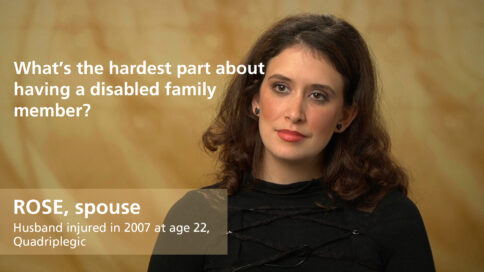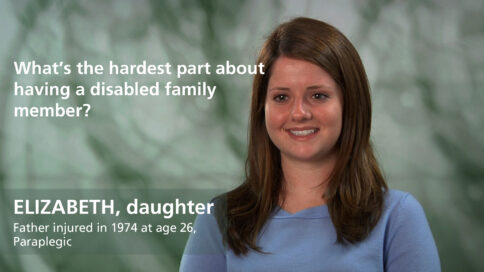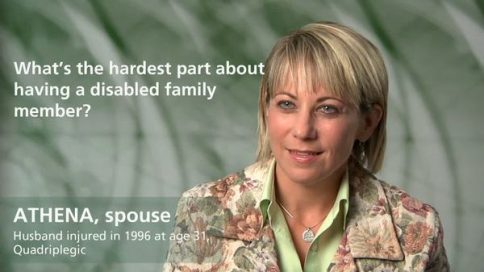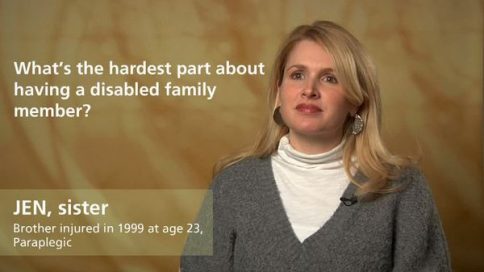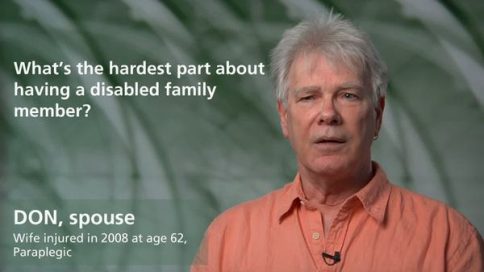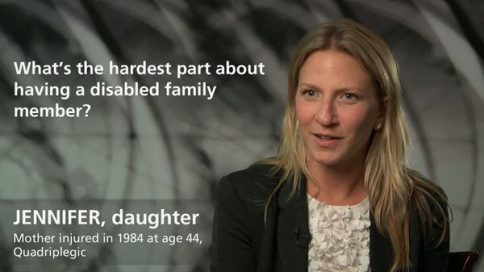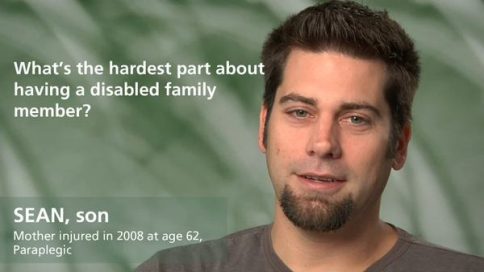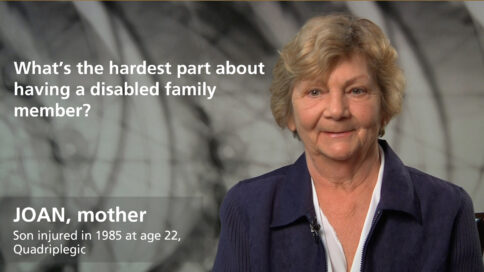What coping strategies work best for family members after a spinal cord injury? - Sigmund Hough, PhD
|
|
What coping strategies work best for family members after a spinal cord injury? |
|
Sigmund Hough, PhDNeuropsychologist/Spinal Cord Injury Service, VA Boston Healthcare System |
||
| Read Bio | More Videos by Sigmund Hough | |
|
Share |
||
Transcript
You’re sitting there going “I wonder if I’ll ever see the person again? Will they ever be able to go back to work? What does that mean for the family? Are we going to be poor? Are we going to give up our life dreams?” The way to cope is to understand what did you do before, and now how does that apply here and then let’s talk about some of these skills. And one of the skills is “are you taking care of yourself?” First and foremost, you need to take care of yourself. And I’ve had discussions where, “I don’t have time to take care of myself, I need to be there.” And It’s like yeah, you’re going to be there 24/7, and sometimes they are, until you feel comfortable. So work with the team, work with the nursing staff, work with the OT’s, the PT’s, the speech—all insights and mental health—and the physicians, and talk about your readiness, your trust. How do you let go a little bit to allow us to do our job? And when you do that, you need to monitor us because that’s going help you feel safe. Part of that is Skyping now, and using the telephone and keeping in contact with us on a daily basis if that’s needed. We don’t really mind that because we’re all busy! When people say, “I’m busy,” if you’re not busy you’re not at work. So you have permission—not to bug us—but you have permission to call us because we can’t help if we don’t know.
Show Less|
|
||
add
What coping strategies work best for family members after a spinal cord injury? |
||
Sigmund Hough, PhDNeuropsychologist/Spinal Cord Injury Service, VA Boston Healthcare System |
More Videos by Sigmund Hough | |
| Transcriptadd | share | |
You’re sitting there going “I wonder if I’ll ever see the person again? Will they ever be able to go back to work? What does that mean for the family? Are we going to be poor? Are we going to give up our life dreams?” The way to cope is to understand what did you do before, and now how does that apply here and then let’s talk about some of these skills. And one of the skills is “are you taking care of yourself?” First and foremost, you need to take care of yourself. And I’ve had discussions where, “I don’t have time to take care of myself, I need to be there.” And It’s like yeah, you’re going to be there 24/7, and sometimes they are, until you feel comfortable. So work with the team, work with the nursing staff, work with the OT’s, the PT’s, the speech—all insights and mental health—and the physicians, and talk about your readiness, your trust. How do you let go a little bit to allow us to do our job? And when you do that, you need to monitor us because that’s going help you feel safe. Part of that is Skyping now, and using the telephone and keeping in contact with us on a daily basis if that’s needed. We don’t really mind that because we’re all busy! When people say, “I’m busy,” if you’re not busy you’re not at work. So you have permission—not to bug us—but you have permission to call us because we can’t help if we don’t know.
